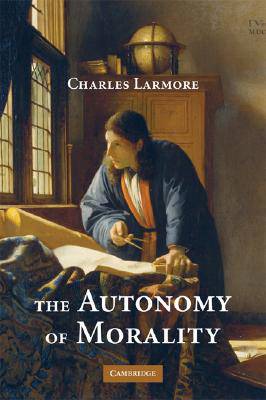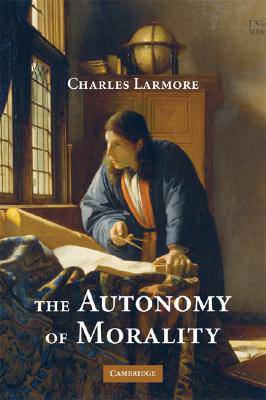
Bedankt voor het vertrouwen het afgelopen jaar! Om jou te bedanken bieden we GRATIS verzending (in België) aan op alles gedurende de hele maand januari.
- Afhalen na 1 uur in een winkel met voorraad
- In januari gratis thuislevering in België
- Ruim aanbod met 7 miljoen producten
Bedankt voor het vertrouwen het afgelopen jaar! Om jou te bedanken bieden we GRATIS verzending (in België) aan op alles gedurende de hele maand januari.
- Afhalen na 1 uur in een winkel met voorraad
- In januari gratis thuislevering in België
- Ruim aanbod met 7 miljoen producten
Zoeken
Omschrijving
In The Autonomy of Morality, Charles Larmore challenges two ideas that have shaped the modern mind. The world, he argues, is not a realm of value-neutral fact, nor is reason our capacity to impose principles of our own devising on an alien reality. Rather, reason consists in being responsive to reasons for thought and action that arise from the world itself. In particular, Larmore shows that the moral good has an authority that speaks for itself. Only in this light does the true basis of a liberal political order come into view, as well as the role of unexpected goods in the makeup of a life lived well. Charles Larmore is W. Duncan MacMillan Family Professor in the Humanities and Professor of Philosophy at Brown University. The author of The Morals of Modernity and The Romantic Legacy, he is a member of the American Academy of Arts and Sciences. In 2004 he received the Grand Prix de Philosophie from the Académie Française for his book Les pratiques du moi.
Specificaties
Betrokkenen
- Auteur(s):
- Uitgeverij:
Inhoud
- Aantal bladzijden:
- 288
- Taal:
- Engels
Eigenschappen
- Productcode (EAN):
- 9780521717823
- Verschijningsdatum:
- 14/07/2008
- Uitvoering:
- Paperback
- Formaat:
- Trade paperback (VS)
- Afmetingen:
- 150 mm x 221 mm
- Gewicht:
- 385 g

Alleen bij Standaard Boekhandel
+ 118 punten op je klantenkaart van Standaard Boekhandel
Beoordelingen
We publiceren alleen reviews die voldoen aan de voorwaarden voor reviews. Bekijk onze voorwaarden voor reviews.









